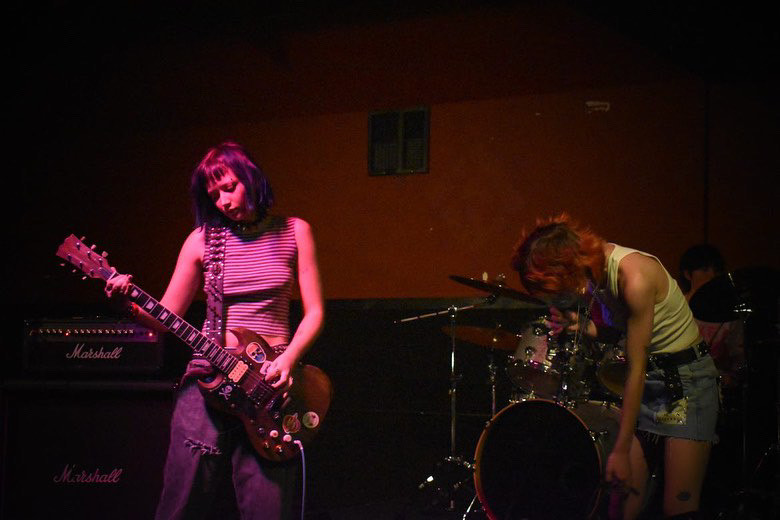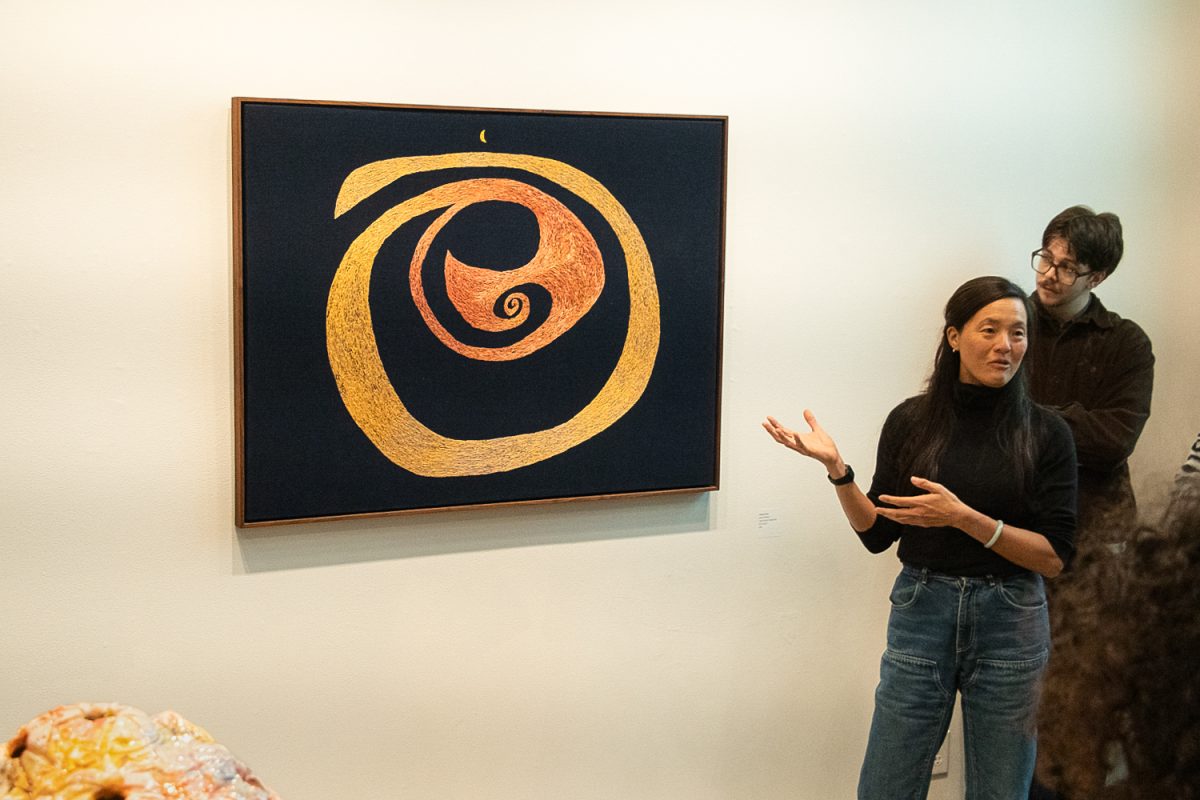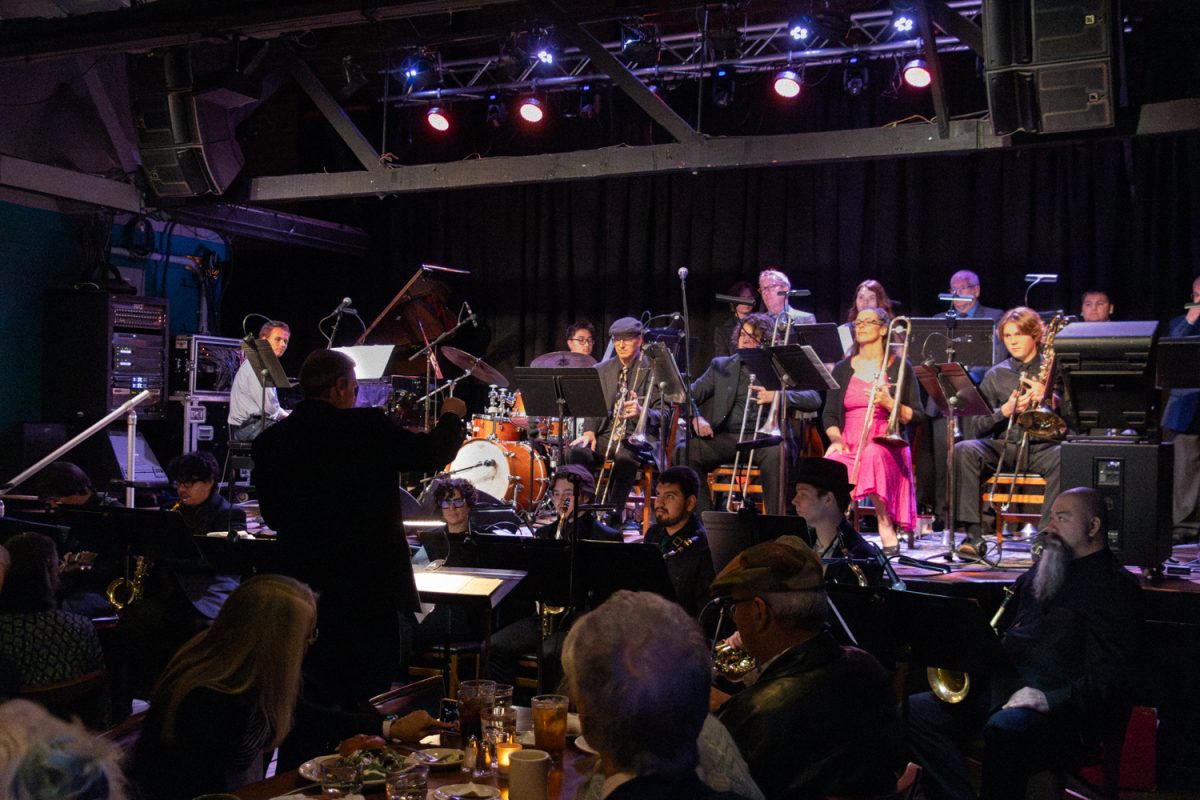I was 14 years old, driving down desolate backroads with my father when punk rock music found its way to me. As we made our way along those quiet byways, he recalled his youth, reminiscing about the moment when “Waiting Room” by Fugazi blared through his car stereo.
The song, intertwined with a fond memory of a late friend, became a powerful addition to his musical arsenal and, decades later, to mine as well.
I spent years digging through vinyl records my father passed down, falling for classic rock legends like The Beatles, David Bowie, and Bob Dylan, but the new hypnotizing and aggressive sound of Fugazi opened an entirely different world.
The infectious energy of the iconic punk rock band gripped me entirely. Suddenly I couldn’t listen to anything else and quickly understood why this genre captivated generations before me.
Fugazi was formed in Washington, D.C., in 1987. Ian MacKaye and Brendan Canty had just come out of one of the most influential hardcore punk bands of the early 1980s, Minor Threat, and Guy Picciotto and Joe Lally were part of the seminal post-hardcore band Rites of Spring.
They began playing together as Fugazi, an acronym formed from a military slang term: “F—d Up, Got Ambushed, Zipped In.” Their objective was to step away from the hardcore scene’s antagonism and politics while still maintaining its anti-authoritarian spirit.
This was successfully conveyed in 1989 after a debut full-length album, 13 Songs, showcased a compilation that gathered the band’s early work from their first two EPs—Fugazi and Margin Walker. This collection marked an initial offering to the public, becoming a manifesto of their sound and ethos.
The lyrics in this album are evidently thought-provoking, addressing a wide range of topics from independence to societal issues, consumerism, violence, and the state of the world.
MacKaye’s philosophies of personal agency rejected the commodification of punk culture, making it clear that there was a statement to be made about living in opposition to the mainstream, corporate-driven world.
This theme is most effectively shown in the most well-known track from the album, “Waiting Room.” After three decades, it continues to be a punk staple, with a distinctive bassline and sharp, jagged guitar work.
An energizing, distinctive sound makes the song accessible even to those who aren’t typically drawn to hardcore music. The track’s driving bassline, played by Lally, is instantly recognizable, and its upbeat rhythm gives it a dynamic, almost danceable quality—something rare for a punk song.
Combined with Canty’s tight drumming and the interplay between MacKaye’s vocals and Picciotto’s guitar, it creates a propulsive sound that still catches my ear.
The intensity of punk, with its high volume and raucous yet often rudimentary instrumentation, can serve as a form of catharsis, allowing listeners to channel their inner turmoil into the music.
This theme permeates Fugazi’s work, and over the years of indulging in this unruly sound, I’ve developed a stronger sense of self, molded by the very spirit of defiance and authenticity that defines the genre.
As my love for punk rock continues to grow, I can still trace that passion back to one pivotal moment. My father, who I have to thank for most things in my life, revealed a nostalgic memory of his late friend and their shared taste in Fugazi’s music—and without me realizing it at the time, unknowingly planted the seed for transformation in my own life.
A memory, simple yet profound, has shaped a core part of my identity, influencing not just my taste in music but my values, my sense of self, and how I view the world today.















